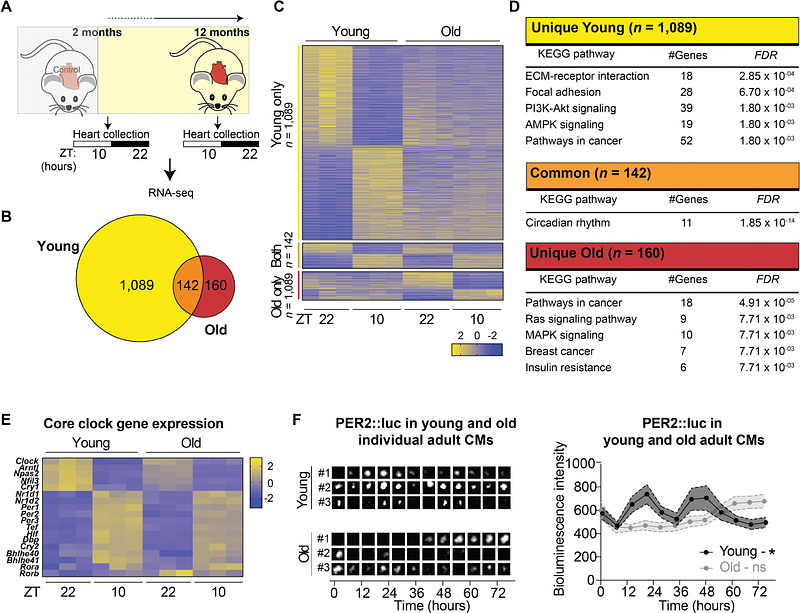NAD+ controls circadian rhythmicity during cardiac aging

NAD+ controls circadian rhythmicity during cardiac aging
Carpenter, B. J.; Lecacheur, M.; Mangold, Y. N.; Cui, K.; Guenther, S.; Dierickx, P.
AbstractDisruption of the circadian clock as well as reduced NAD+ levels are both hallmarks of aging. While circadian rhythms and NAD+ metabolism have been linked in heart disease, their relationship during cardiac aging is less clear. Here, we show that aging leads to disruption of diurnal gene expression in the heart. Long-term supplementation with the NAD+ precursor nicotinamide riboside (NR) boosts NAD+ levels, reprograms the diurnal transcriptome and reverses naturally occurring cardiac enlargement in aged female mice. In addition, complete abolishment of NAD+ levels in CMs impairs PER2::luc oscillations, which is rescued by NR supplementation. These findings reveal an essential role for NAD+ in regulation of the cardiac circadian clock upon aging, which opens up new avenues to counteract age-related cardiac disorders.